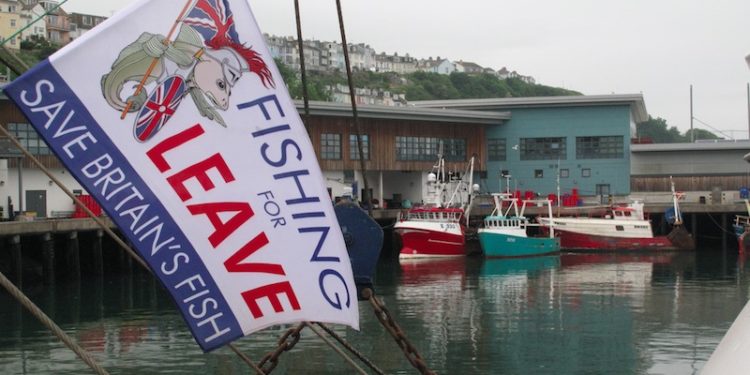Research published by the New Economics Foundation (NEF) suggests that Brexit is likely to hit fishing communities hard, with boats short of quota and processors, retailers and wholesalers left worse off under nearly all Brexit scenarios.
NEF’s Not in the Same Boat: The economic impact of Brexit across UK fishing fleets report examines five different Brexit scenarios ranging from a soft Brexit to the UK leaving the European Union without a deal, taking a detailed look at the potential impacts on different sectors of the UK fleet.
According to the thinktank’s findings, it is only under the extremely unlikely ‘Fishing First’ scenario that places fisheries above all other UK interests that there are likely to be positive outcomes.
Under all other scenarios NEF concludes that some sectors of the fishing industry, primarily smaller vessels, will be worse off, while the fishing supply chain of processors, wholesalers and retailers will be highly exposed to the risks of tariffs and non-tariff barriers.
‘That means that under any likely Brexit scenario, coastal communities in the UK will be worse off,’ NEF states, and also highlights the likelihood of an increase in overfishing.
NEF finds that under a hard Brexit around half of the UK fleet would experience an increase in economic performance, while there would be a reduction in economic performance for sectors of the fleet hit by the impact of tariffs – affecting primarily small scale vessels fishing with pots and traps. Its conclusions for a no deal scenario are roughly similar, with the established operators with quota holdings left relatively secure while the outlook for other sectors of the fleet would be even worse.
A soft Brexit with compromises made over EEZ access in return for access to European markets would leave vessels with quota holdings able to improve performance while at the other end of the scale lower tariffs would leave fishermen better off but most vessels in a worse economic position.
Under NEF’s prognosis, a Fisheries Last scenario under which fisheries are left out of negotiations and with no trade-offs for access to waters in return for market access, there would be losses for all sectors of the fleet, with everyone left worse off.
‘For many of Brexit’s most passionate advocates, the fishing industry has been a totemic issue,’ said Griffin Carpenter, Senior Researcher at the New Economics Foundation. ‘They claim we can take back control of our waters and give more quota to struggling fishers. But in reality, the UK has always been able to decide who gets quota – and it has always been the little boats that have lost out.’
‘Our research shows that Brexit will almost certainly make things worse for much of Britain’s fishing fleet, as well as the already struggling coastal communities which rely on fishing. Half of Britain’s fleet don’t have any quota but do export to Europe. Brexit will hit them particularly hard,’ he said.
‘Brexit poses a severe threat to Britain’s fishing communities, as the majority of ports receive most of their landings from vessels that do not hold quota but do export to the EU market. As ministers negotiate a future fishing deal, they must be clear on the scale of this threat.’
NEF’s recommendations are that the UK government needs to drop its combative rhetoric and instead focus on a collaborative approach and seek a post-Brexit transition period of at least two years. It advises that any increase in quota should be used to support the smaller boats that traditionally lose out.
Further recommendations are for the focus to be placed on securing access to the EU market with minimum tariffs and non-tariff barriers, empowering fishermen through co-management and increased representation for the small-scale fleet, and generating funding for management through a landings tax
‘We need a fishing policy which supports all British fishers and coastal communities, and which does not harm our marine environment. We will only get this if we seek to co-operate with our neighbours and use existing powers of quota allocation to support those fishers who traditionally lose out,’ Griffin Carpenter said.
‘We can take control of our waters, but that doesn’t happen just by shouting about it. It happens by working with our neighbours to ensure shared stocks are fished sustainably, and barriers to trade are minimal. And it happens by empowering all fishers – large-scale or small-scale, local sellers or fish exporters, quota-rich or quota-poor – so they can build truly sustainable local economies. That would be real control.‘
The New Economics Foundation’s full report can be found here









